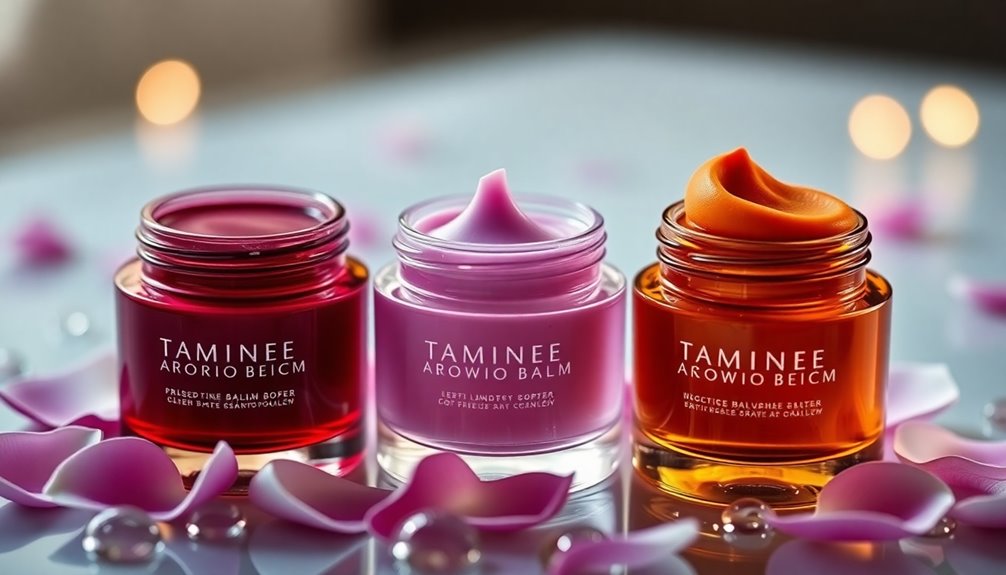Yes, sex is good for you! Engaging in regular sexual activity boosts your heart health, improves your immune system, and helps manage pain. It releases endorphins and promotes relaxation, enhancing your mood and sleep quality. Beyond the physical benefits, sexual intimacy fosters emotional connections, increasing relationship satisfaction and reducing feelings of loneliness. Plus, as you age, staying sexually active can improve your overall well-being. Overall, a satisfying sex life contributes to a fulfilling life. If you're curious about how these benefits specifically apply to different stages of life, there's plenty more to explore!
Key Takeaways
- Regular sexual activity reduces heart disease risk by 35% and enhances cardiovascular health.
- Engaging in sex boosts immunity by increasing immunoglobulin A levels, helping fight infections.
- Orgasms promote relaxation and better sleep through the release of prolactin, improving overall well-being.
- Sexual intimacy fosters emotional connections, leading to higher relationship satisfaction and reduced feelings of loneliness.
- Active sexual engagement serves as a natural pain reliever, alleviating chronic pain and menstrual cramps.
Health Benefits of Sexual Activity

Engaging in sexual activity offers numerous health benefits that can greatly enhance your well-being.
Regular sex can improve your heart health, with studies showing that men who stay sexually active may reduce their risk of heart disease by 35%. It also helps lower blood pressure and boosts your immune system, as those who engage in sex weekly have higher levels of immunoglobulin A, essential for fighting off illness.
You'll likely experience better sleep due to the release of prolactin after orgasm, promoting relaxation. Additionally, sexual activity can reduce stress and alleviate chronic pain, making it a natural pain reliever.
Mental Health and Emotional Connection

Sex doesn't just contribute to physical health; it plays a significant role in mental well-being and emotional connection. Engaging in sexual intimacy can boost your mood through the release of hormones like dopamine and serotonin, reducing anxiety and depression. The emotional connection you build fosters relationship satisfaction, leading to higher happiness levels. Oxytocin, the "bonding hormone," enhances relaxation and closeness with your partner. Studies reveal that the afterglow from sexual activity can sustain relationship satisfaction for up to 48 hours, positively impacting your mental health. Regular sexual engagement correlates with overall life satisfaction, providing a sense of fulfillment. Additionally, maintaining emotional alignment in a relationship can further enhance these benefits.
| Emotional Benefit | Effect on Your Life |
|---|---|
| Boost your mood | Increased happiness |
| Enhanced intimacy | Stronger emotional connection |
| Higher relationship satisfaction | Greater life satisfaction |
| Release of oxytocin | Improved mental well-being |
| Lasting afterglow | Long-term fulfillment |
Sexual Activity and Pain Management

Engaging in sexual activity can be a powerful way to manage pain, thanks to the release of endorphins that act as natural painkillers.
You might find that intimacy not only boosts your pain tolerance but also helps distract you from chronic discomfort.
Plus, the muscle contractions during orgasm can strengthen your pelvic floor, reducing discomfort even further.
Endorphins and Pain Relief
Pleasure and pain often coexist, and sexual activity can play a surprising role in managing discomfort. When you engage in sexual intimacy, your body releases endorphins, which serve as natural pain relievers. This can help alleviate various types of pain, including migraines and chronic pain conditions.
Many women report that orgasms can relieve menstrual cramps, with 70% noting that masturbation positively affects pain intensity. Not only does sexual activity help distract from chronic pain, but it also enhances your emotional connection, promoting overall well-being.
Studies show that 62% of women experience some relief from pain after sex, while 31% report significant reductions. By incorporating regular sexual activity, you can adopt a holistic approach to pain management. Additionally, engaging in physical activities like running can also contribute to overall pain relief and boost endorphin levels.
Intimacy and Pain Tolerance
When it comes to managing pain, intimacy can be surprisingly effective. Engaging in sexual activity releases endorphins, which are natural pain relievers that help alleviate various types of pain, such as migraines and menstrual cramps.
Studies show that 70% of women find orgasms relieve menstrual pain, highlighting the health benefits of intimacy. Additionally, intimacy provides a distraction from chronic pain symptoms, increasing your pain tolerance.
A survey revealed that 62% of women experienced some relief from pain due to intimacy, with 31% noting significant reductions in pain intensity. The emotional connection fostered through physical intimacy can also reduce anxiety, further contributing to pain relief and enhancing overall well-being.
Embracing this intimate experience can truly benefit your health.
Sleep Quality and Hormonal Balance

When you engage in sexual activity, you might notice an improvement in your sleep quality. Orgasms release prolactin, which helps you feel drowsy and ready for rest.
Plus, better sleep can enhance your hormonal balance, influencing everything from stress levels to your overall sexual health.
Sleep Regulation Benefits
Engaging in sexual activity can greatly enhance your sleep quality and hormonal balance. When you orgasm, your body releases prolactin, which aids in sleep regulation and promotes that post-sex drowsiness you might enjoy.
Regular sexual activity leads to improved sleep patterns, which are vital for maintaining hormonal balance and even boosting immune function.
Curiously, research shows that when you get adequate sleep, your sexual desire often increases the next day, creating a positive feedback loop between sleep and sex.
On the flip side, sleep disturbances can lower your libido and diminish sexual satisfaction, making healthy sleep hygiene essential for ideal sexual health. Additionally, maintaining a balanced lifestyle through energy-efficient technologies can further support overall well-being and enhance both sleep and sexual health.
Hormonal Balance Enhancement
Healthy sleep and sexual activity are closely intertwined, each influencing the other in significant ways. Engaging in regular sexual activity enhances hormonal balance by promoting prolactin release during orgasm, which helps regulate sleep. This post-sex drowsiness leads to better sleep quality, boosting your immune function and overall health.
Here's a quick overview of the connection:
| Aspect | Impact |
|---|---|
| Sexual Activity | Enhances prolactin, improves sleep |
| Sleep Quality | Boosts sexual response and desire |
| Hormonal Balance | Supports overall health benefits |
A good night's sleep can increase your sexual desire the next day, showcasing the essential link between restful nights and fulfilling sexual experiences. Additionally, maintaining a balanced diet may contribute to better hormonal regulation and overall health.
Immune System Enhancement

Sex can be a powerful ally for your immune system. Engaging in regular sexual activity can greatly boost your immune system by increasing IgA levels, an antibody vital for fighting infections.
Studies show that having sex at least once a week elevates these antibody levels, helping improve immune function against various pathogens like HPV and potentially COVID-19.
Furthermore, a healthy sex life promotes better sleep quality, essential for ideal immune health. The physical intimacy and stress reduction that come from sexual activity also enhance your mental well-being, which is closely linked to immune performance.
Relationship Satisfaction and Intimacy

A strong immune system isn't the only benefit of a fulfilling sexual life; it also plays a significant role in enhancing relationship satisfaction and intimacy. Regular sexual activity fosters a deeper emotional connection, allowing you and your partner to experience heightened intimacy.
This sexual intimacy not only strengthens your bond but also enhances communication, fostering trust and vulnerability. These elements are essential for a robust relationship.
The "afterglow" effect keeps relationship satisfaction elevated for up to 48 hours post-intercourse, contributing to overall relationship health. In addition, couples who maintain an active sex life often resolve conflicts more effectively, leading to greater stability.
Sexual Health Across the Lifespan

While many might think of sexual health as a concern primarily for younger individuals, it remains essential throughout life, impacting well-being at every age. Engaging in sexual activity promotes cardiovascular health, enhances emotional well-being, and strengthens pelvic floor muscles, especially in older women. Maintaining intimacy is vital for combating loneliness and depression as you age. Additionally, the emotional distress related to parental infidelity can significantly affect one's approach to intimacy and relationships.
Here's a visual representation of key points:
| Age Group | Benefits of Sexual Activity | Importance of Education |
|---|---|---|
| Young Adults | Establish healthy habits | Understanding sexual health |
| Middle-Aged Adults | Boosts heart health | Enhancing emotional connections |
| Older Adults | Improves overall well-being | Prioritizing intimacy |
| Aging Populations | Reduces urinary incontinence | Empowering self-care |
Frequently Asked Questions
How Often Do Men Need Sex?
How often you need sex can vary quite a bit.
Some studies suggest that men who've sex at least once a week tend to report better overall well-being, while others find that twice a week might be even more beneficial for heart health.
Your sexual desire can change due to age, stress, or relationship dynamics, so it's important to listen to your own needs and preferences to find what works best for you.
What Are the 5 Benefits of Sex?
When you think about the benefits of sex, several key points come to mind.
To begin with, it can boost your mood by releasing endorphins and oxytocin.
In addition, regular intimacy can improve your cardiovascular health.
Thirdly, it enhances your immune system, helping you fend off illnesses.
Fourth, sex can lead to better sleep quality.
Finally, it offers natural pain relief, making those pesky migraines or cramps a bit more bearable.
How Often Should Couples Have Sex?
Think of your relationship like a garden; regular watering keeps it vibrant and flourishing.
There's no one-size-fits-all answer for how often you should have sex, as it truly depends on your unique connection.
Couples who engage intimately at least once a week often find deeper satisfaction and emotional closeness.
Pay attention to each other's needs and desires, and communicate openly to guarantee your garden continues to bloom beautifully.
Conclusion
To sum up, who knew that a little romp in the sheets could be your secret weapon for health? Forget kale smoothies and marathons—just embrace a good ol' sexual escapade! Sure, you might get a bit sweaty, but think of the immune boost and emotional bonding! So, why not trade that gym membership for a night of passion? After all, if you can't laugh your way into better health, what's the point of living, right?










